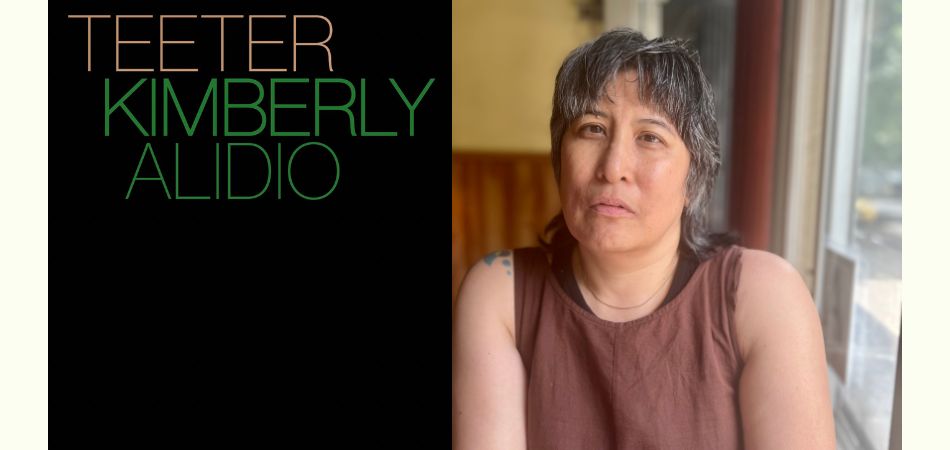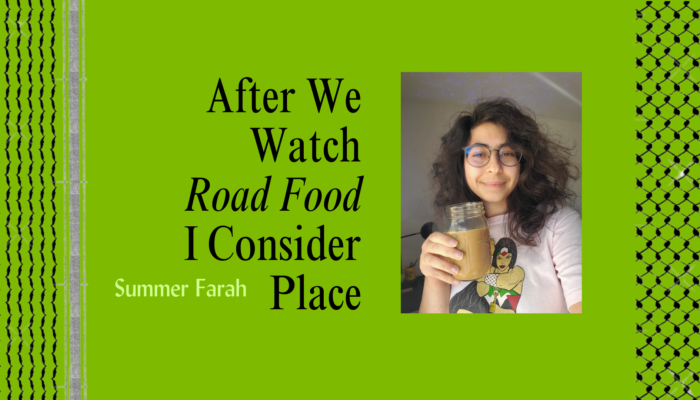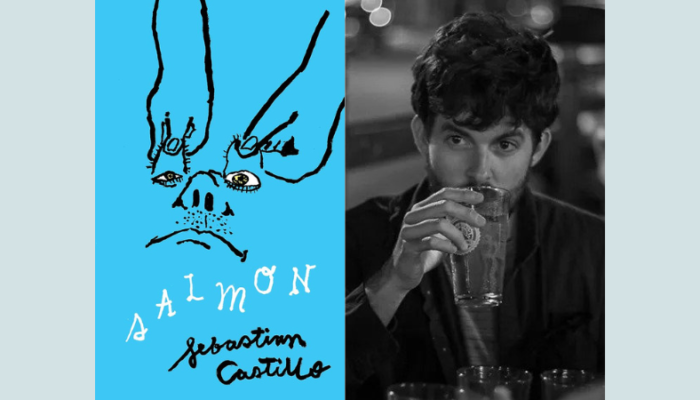then I ate the antidote for living
I had the throat of living; all I did was living
– Dionne Brand, Nomenclature: New and Collected Poems1
I first met poet Kimberly Alidio when I enrolled in her workshop on Documentary Poetics: Archive and Counter-lyric at Kundiman. A former academic historian, Alidio’s work refuses the task and tone thereof; her work, pedagogic and poetic, is that of a dexterous maker and attuned hearer. Teeter, her fourth full-length poetry book, marks the apex of a language poet’s work, where making occurs alongside documenting but does not extract from it and in which hearing surrounds language but does not acquire, master, or own it.
Between the archival tousling of her previous books, after projects the resound (Black Radish Press, 2016) and its follow-up why letter ellipses (selva oscura press, 2020) and the queer syntactical dissolution of : once teeth bones coral : (Belladonna*, 2020), Alidio’s work indeed teeters, meandering through or remixing affect and archive, never stagnating or calcifying into that which is mappable. To teeter, then, is to engage a poesis of being, beyond a crude antagonism of docupoetry and the lyric. For the imperatives of extraction and proof are misplaced in poetry, which is not required to prove anything, particularly in the case of Alidio. The speaker in “HISTORIES”, the last long poem in the book, says: “just being a being, rather than putting your beingness to work in the guise of a set of questions or aesthetics or cultural capital, is experiment itself” (66). To “FACT the lyric”, then, is an ironic imperative (37).
Alidio’s autohistoriography begins with the book’s multivocal epigraph, citing nine different texts. The epigraph is invocation, a verso, the first panel of a diptych. Teeter’s is choral and multivocal, both cento and genealogy, featuring the nine muses of which the book is a child, evoking the nine Greek muses who also frame Theresa Hak Kyung Cha’s DICTEE. Form is constraint, but the vibration of sound moves outward, echoing with possibility and shared history. For a moment, time is foiled, and Alidio’s muses–including Cha, Gertrude Stein, Moníca De La Torre, and others–speak in the same room:
in questo interregno si verificano i fenomeni morbosi piú svariati
– ANTONIO GRAMSCI
That is to say, the noise that it makes is part of the meaning.
– KAMAU BRATHWAITE
Both the epigraph and the title establish play: they teeter, like a seesaw. Play shakes off constraint. You might tell someone to “blow off some steam”, for movement remedies feeling pent up. It is this valence of play which delights me time and time again in Alidio’s work, whereby the “property relation between speaker & / word softens” (30).
“HEARING”, the first of the book’s three disjunct long poems, begins quietly. Hearing indeed requires quiet. The prehistoric image of “alternating gills of exhaling fern” (3) precedes a number of formal sound sections. “HEARING” is both disobedient and submissive: it warps lyric yet hushes itself to make way for the noise. Hearing, too, is the mode of the pre-verbal child. “Poem as abstraction of my voice” contemplates the “sooth[ing]” (6), “native language” of noise:
we track in lament an infant’s late-term fetal hearing our hearing searches out their hearing in my poem an abstraction of my voice you may search out my childhood hearing …. so much sound is beyond me (26)
There is little to make sense of, the noise constantly “[c]ohering for a / moment & then not” (6). This oscillation of (in)coherence, too, describes how citations dovetail with Alidio’s own words. Throughout the book, Alidio “arranges / ripped text” (17, emphasis mine), evoking both collage and piracy:
A voice in no singular voice
I mean refrain as in chorus, not as in abstention or curbing an
impulse. Immersed & abandoned, to decide is lonely. Noise is
an asymbolic space. In my own work, I try to leave some
noise. (30, emphasis mine)
Citations are neither obscured nor flagged in these poems. From its etymon refer (to trace back, report), a reference traces back to an ultimate cause or source. That said, “hearing is absolutely non-absolute”, in its sheer inordinance; in hearing, “the languages moving through language refuse / sense & reference” (33).
“AMBIENT MOM”, the second long poem, orbits ancestral languages unknown and unspoken by the speaker. Alidio’s occult docupoesis conjures language that accompanies and mirrors the noise; in doing so, these poems disobey any imperative toward representation or translation–expected modes for such diasporic, multilingual poetry. Occult docupoesis is also conspiracy: to conspire is to act in harmony toward a common end. Difference is familiar when “people speak their / own languages around you” (30): a “bond through repetition” (51) of a “Pangasinan of the everyday” (42).
A common corollary of colonialism is language loss. Alidio weaves an oral conceit throughout “AMBIENT MOM”, arranging Pangasinan phonemes in the shape of a mouth (38) and, in lines such as “my mouth runs on” (59), evoking the distance between sound and speech. But mimesis is not representative–Alidio traces a loss that “can’t [be] properly mourn[ed]”, one that occurs somewhere after the ears and before the mouth, a loss with “origins in the ambient” (45):
inherence not inheritance
never been
separate
perlocutions
aligned or resistant to
utterance
meanwhile coloniality simulates
ownership + possession
a poetic self
tracing the origins (39)
Teeter is no project book, though it contends with the status of the book as an object—with relations to capital, commodities, markets. The last long poem, “HISTORIES”, locates the tension between book-making and poesis, between finding a market and the experiment of “being[,] written” (71). The speaker of “The word excuse means justification & explanation” goes on to say: “The poesis of change could make for poetry. Such composing is also part of the flux” (71). Is the book “about” sound, language, or history, or is it that its circulation in a market occasions its aboutness? What happens when persona is forged “no longer through a problem but curiosity” (81)? In “Autohistoriography of Arrival at a River”, the speaker says:
to live is to embrace thinghood’s inconceivable conception. Every value conceivable in every existence is a thing, every capacity to conceive is a thing, every medium of conception is a thing & for every thing (turn turn turn) there is a market (turn turn turn). (74)
Amid the global state of emergency of antiblackness2, “Autohistoriography of Arrival at a River” posits, “Perhaps the human is over. Perhaps no representation should be entrusted to human hands” (76). This assertion echoes the work of thinkers like Dionne Brand, Saidiya Hartman, and Sylvia Wynter. Contrary to popular belief, poets might not have all the answers, but through encountering the mysteries, through making and unmaking meaning through language, “some unknowns are closer to being known” (63).
Teeter’s slow work of curiosity is antithetical to an achievement-oriented society, one which stifles creativity in favor of constant exploitation. In such a society, “[m]erely working and merely living define and condition each other.”3 Or, in Alidio’s words, “Living is so full-time” (79). By refusing such “morbid transactions” (67), Teeter asks an openness of the reader, encouraging me to “find [my] own way to read, to order, to establish relation between units of language” (74). This is not a lecture, but a dance. I thank Kimberly Alidio for Teeter, a book that moves me to keep making and unmaking. Now, “Let’s attune to the quiet & the noise” (73).
1 Dionne Brand, Nomenclature: New and Collected Poems. Duke University Press, 2022.
2 Dionne Brand, “On narrative, reckoning [and] the calculus of living and dying.” Toronto Star, 4 Jul. 2020.
3 Byung-Chul Han, The Burnout Society. Trans. Erik Butler. Stanford University Press, 2015.
Teeterwas published August 15, 2023 by Nightboat Books.




